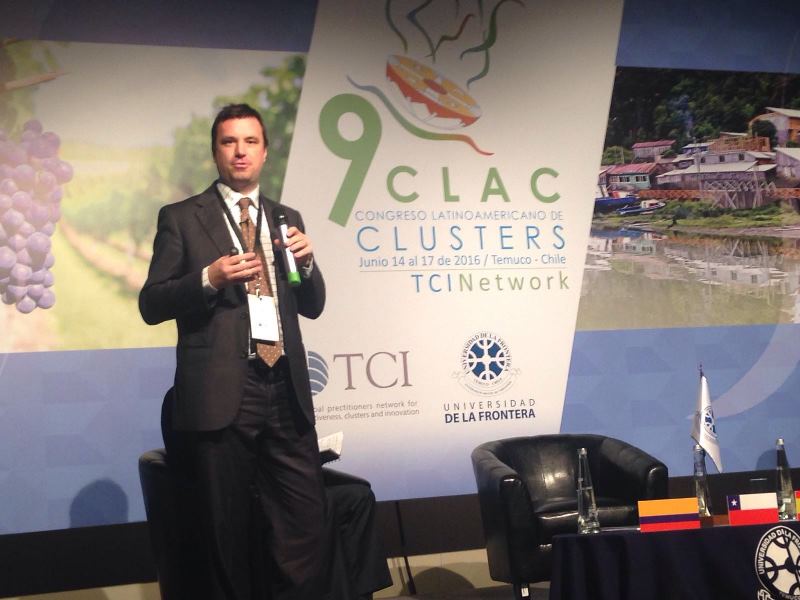20 June 2016
The Week of Innovative Regions (WIRE 2016), held in the region of Brainport Eindhoven (Holland) on June 8-10 and the 9th TCI Latin American Conference, held in the region of La Araucanía (Chile) from June 14-17, were scenarios for interesting debates and discussions on Research and Innovation Smart Specialisation Strategies (RIS3), and, in particular, on the design and implementation of RIS3 in the Basque Country.
James Wilson, senior researcher at Orkestra presented the Basque case in both conferences. He is co-author, along with Mari Jose Aranguren, general director of Orkestra and Kevin Morgan, professor from Cardiff University and advisor to the European Commission on Smart Specialisation Strategies, of the report Implementing RIS3: The Case of the Basque Country, recently published by Orkestra.
This report highlights the fact that the Basque Country has taken advantage of the need to design RIS3 to review and adapt both its system and its regional innovation strategy. Moreover, it is a pioneering region in making the transition from design to implementation of the strategy, taking into account the established criterion of doing this via an entrepreneurial discovery process, which means that it is a not a case of designing and implementing a government strategy, but rather a strategy developed with the territorial actors that constitute the so-called quadruple helix: government, business, university and civil society.
The RIS3 are the main lever for regional development envisaged by the European Union (EU and a prerequisite for access to its structural and investment funds. Therefore, all the European regions are engaged in designing their own RIS3, encountering, in the process, various challenges which each region is trying to address in practice. For this reason, advanced cases like that of the Basque Country generate considerable interest, on account of the lessons that can be learnt.
The concept of RIS3 has had an impact beyond Europe within the framework of a general trend, at an international level, to encourage new industrial policies, which recognise that territories need strategies and that this means having to choose those economic activities to be supported by this strategy.













